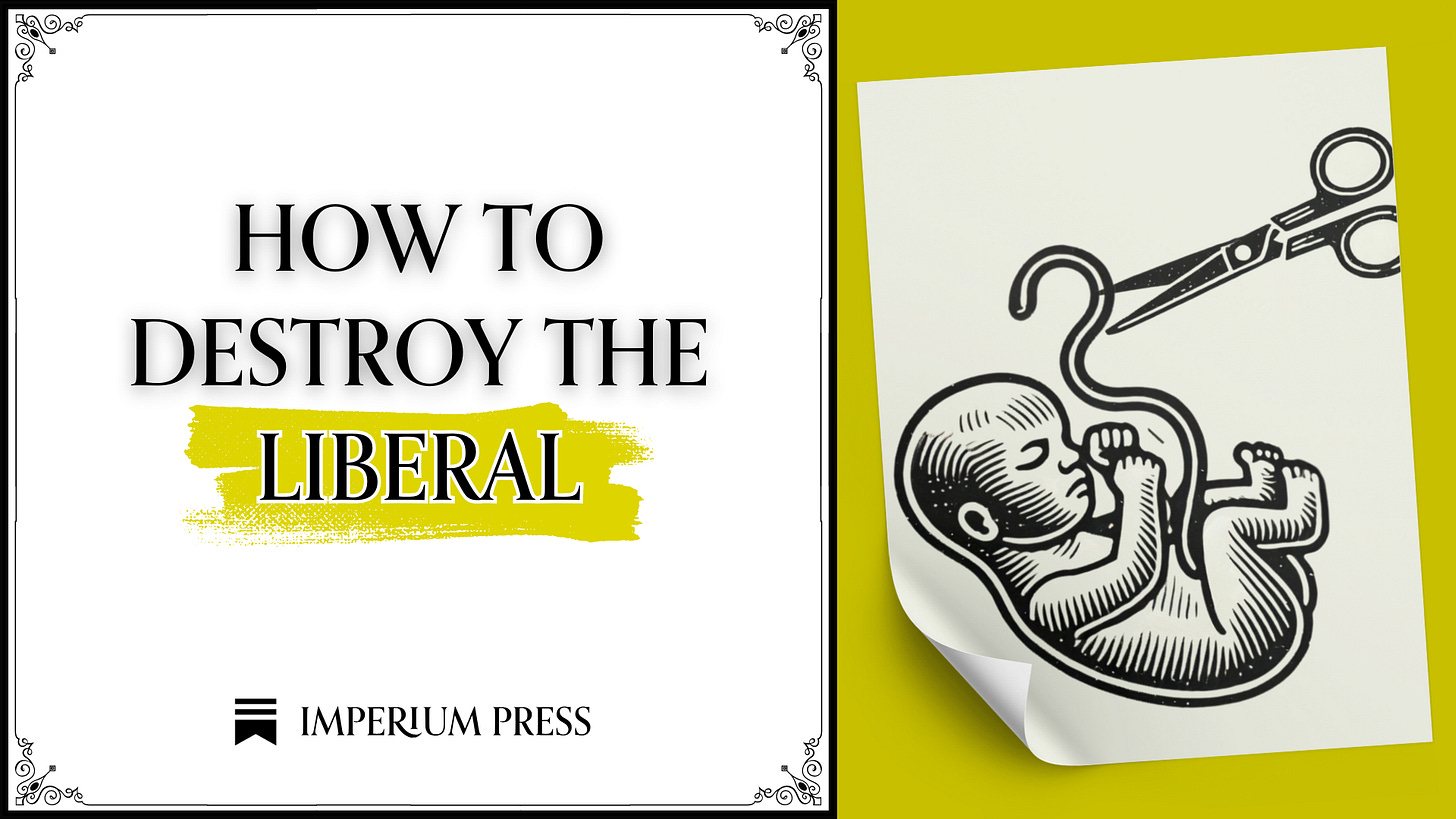If you prefer the audio of this article, click here.
This Substack has grown over three years or so to encompass a lot of material.1 In one of our older articles we introduced you to the masters of suspicion, a set of thinkers in the 19th century whose analytical methods undermined their civilization.
Perhaps the cardinal master of suspicion is Nietzsche. In many of his works, but especially in The Genealogy of Morality, he employs a method of historicizing what is otherwise mythical. We have written elsewhere that historicism in the broadest sense is inherently right-wing, but the historicizing that Nietzsche does is a bit different. What Nietzsche is doing is not simply to immanentize what matters (which is essential to the right), but to assign it a birthdate. If it has a birthdate, it has a father. If it has a father, it has a master. If it has a master, its authority is borrowed.
In the Genealogy, Nietzsche looks at one supposedly transcendent morality and explains where it came from, and as it turns out, the morality of the New Testament came from the revolt of slaves against the master. This is a savage beatdown, but even when you strip away the negativity of the word “slave”, the blow is still fatal. It’s enough that the morality of Christianity came from somewhere, that there was a time when it was not. To assign this morality an origin is to demote it to some secondary or derivative existence. Transcendence has never recovered after Nietzsche.
The progressive view of religious history states that we began as shamanic animists, moved to being ritualistic polytheists, and then discovered doctrinal monotheism, with a few intermediate stages between these three. There is a bogus element to this progressive view which regards each stage as a superior development that better approximates some metaphysical reality. This is itself rather crude and betrays an unfamiliarity with the earlier stages, but the important thing to notice is that the order is roughly correct.2 Monotheism was all but unknown to archaic peoples—it was born at a certain time and place.
This has sufficed for most monotheists who are happy to think of themselves as the culmination of progress, but the more perceptive monotheists have scented danger. If polytheism predates monotheism, this means that polytheism forms the intellectual and conceptual foundation of monotheism which then becomes derivative and auxiliary. One solution has been to make religion into a kind of body of knowledge, to make it into logos, which for reasons we have explained elsewhere, makes religion progressive. The problem with this, however, is that progress never ends, so even monotheism itself gives way to a yet “higher” development in science and ultimately atheism, which replace classical monotheism. The monotheists of middling perception go for this solution, but handwave away the logical conclusion.
The more perceptive monotheists attempt another solution. They grasp that what has a birthdate is weak, so they push monotheism back to the beginning. “Actually”, they say, “the first religions were monotheistic.” The father of these revisionist histories is Wilhelm Schmidt, who devoted a 12-volume work to the idea that monotheism was the original religion. In this work, Schmidt tries to show that monotheism is the “natural” form of religion, with polytheism being a later distortion that arises from archaic peoples mistaking ancestors and natural forces for the one true god. He adduces evidence of an originary monotheism from Australian and New World aboriginals, as well as traditional African and Chinese religions, in their apprehension of a creator god or “great spirit” who is absolutely sovereign, who gives commandments, and who cares what we do. He also points to the existence of a sky god creator among the tribals peoples of West Asia and Europe, as evidence of this.
Without going too far into a refutation, it is enough to point out that a “great spirit” has more in common with animism than monotheism, that sky gods among the Egyptians, Chinese, and Indo-Europeans are not the creator gods,3 and perhaps most tellingly, that historians of religion both before and after Schmidt have given little credence to the “primeval monotheism” thesis. However the important takeaway is that Schmidt’s attempt is motivated by the understanding that a thing derives power and legitimacy by being first.4 In pointing out that this thing has a father, it is thereby undermined. For Schmidt, no longer is monotheism a progressive development out of darkness—polytheism is not merely primitive superstition, but a fall from a golden age. There is a latent anti-progressivism here, a recognition that what is later is not necessarily better. A healthy instinct lies behind this revisionism, but the actual history is arbitrary and rests upon selective reasoning.
When we understand that assigning a thing an origin is to rob it of its power, we can see a clear path to undermining liberalism.





